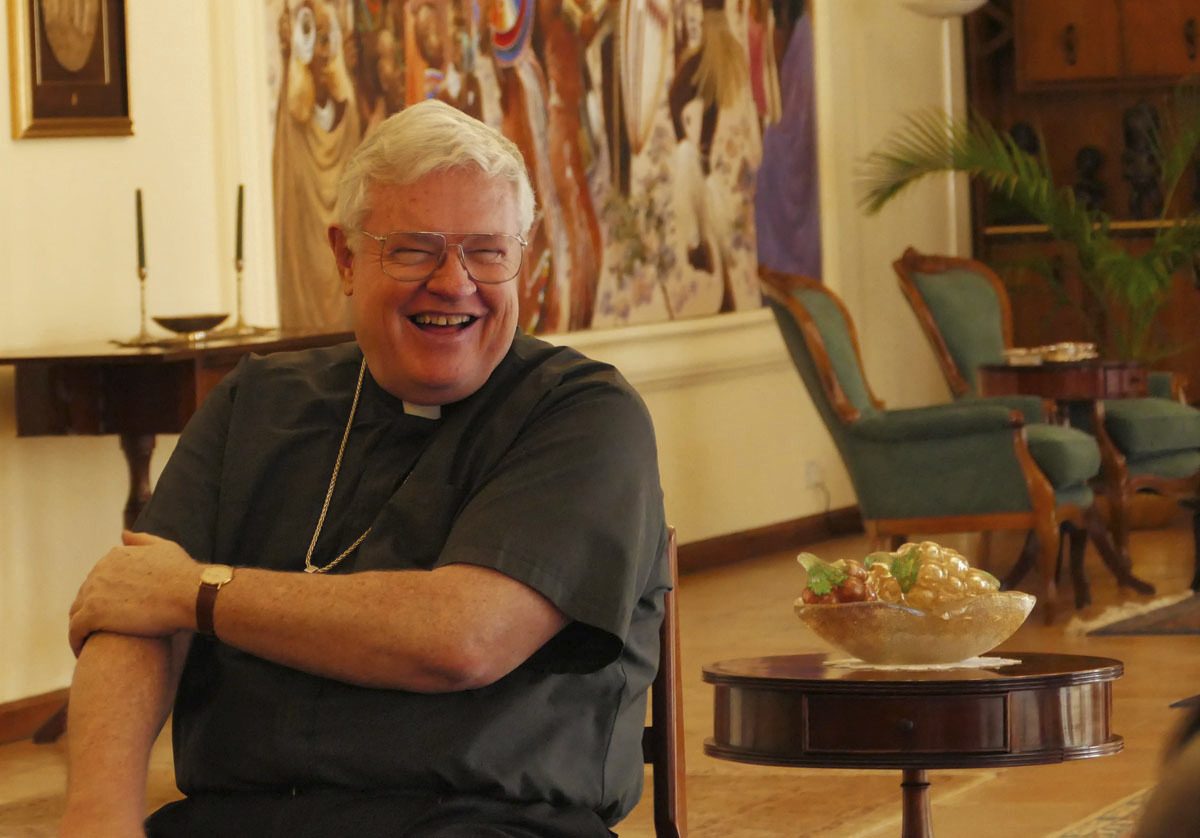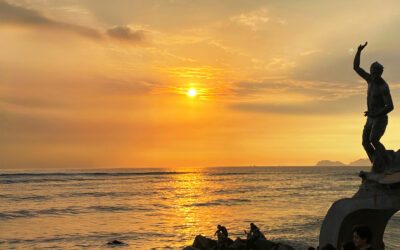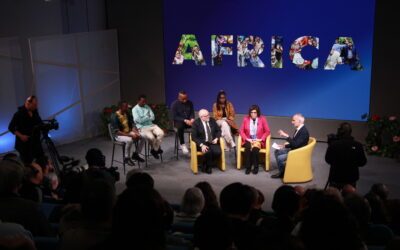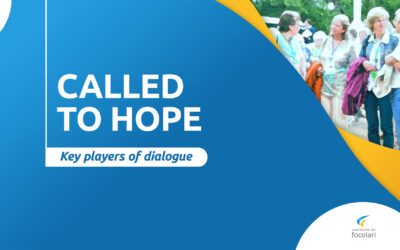 Apostolic Nuncio in Kenya since January 2013, Archbishop Balvo is also the first apostolic nuncio of South Sudan, an independent state since 2011 that has been tried by war, poverty and migrations. Maria Voce and co-president Jesús Morán had met the archbishop at the Nunciature in Nairobi on May 20, 2016 during their visit to Kenya on May 14 – June 1. In a cordial and family atmosphere they shared news and also hopes and concerns over the challenges in the region, especially in South Sudan. They talked about Chiara Lubich who Archbishop Balvo had met during Chiara’s trip to the Middle East in 1999 when the archbishop was serving in Jordan. They also shared about the School of Inculturation that was being held at Mariapolis Piero during those days. He told about his adventure welcoming the Pope to Kenya, and then his visit to the Central African Republic where Christians and non-Christians said “they were struck that the Pope didn’t run away from their problems, and that despite security concerns he spent a night in their country. The archbishop was also updated on news regarding the Focolare, such as the recent surprise visit of Pope Francis to the Mariapolis in the city of Rome. “Pope Francis is the Pope of surprises,” the archbishop responded. But the focus soon shifted to the drama that is taking place in South Sudan. In speaking about the crisis in that region the Nuncio underscored the many challenges: poverty and illiteracy that are worsened because of the lack of peace. In 2007, through AMU, the Focolare had launched a project in the desert around Khartum for the construction of a school for refugees from South Sudan who were living in a camp at the parish of Omdurman. The project, which lasted for several years, was inserted into a diocesan project called “Saving those who can be saved”. The school was built, but afterwards many families returned to South Sudan before it became an independent state.
Apostolic Nuncio in Kenya since January 2013, Archbishop Balvo is also the first apostolic nuncio of South Sudan, an independent state since 2011 that has been tried by war, poverty and migrations. Maria Voce and co-president Jesús Morán had met the archbishop at the Nunciature in Nairobi on May 20, 2016 during their visit to Kenya on May 14 – June 1. In a cordial and family atmosphere they shared news and also hopes and concerns over the challenges in the region, especially in South Sudan. They talked about Chiara Lubich who Archbishop Balvo had met during Chiara’s trip to the Middle East in 1999 when the archbishop was serving in Jordan. They also shared about the School of Inculturation that was being held at Mariapolis Piero during those days. He told about his adventure welcoming the Pope to Kenya, and then his visit to the Central African Republic where Christians and non-Christians said “they were struck that the Pope didn’t run away from their problems, and that despite security concerns he spent a night in their country. The archbishop was also updated on news regarding the Focolare, such as the recent surprise visit of Pope Francis to the Mariapolis in the city of Rome. “Pope Francis is the Pope of surprises,” the archbishop responded. But the focus soon shifted to the drama that is taking place in South Sudan. In speaking about the crisis in that region the Nuncio underscored the many challenges: poverty and illiteracy that are worsened because of the lack of peace. In 2007, through AMU, the Focolare had launched a project in the desert around Khartum for the construction of a school for refugees from South Sudan who were living in a camp at the parish of Omdurman. The project, which lasted for several years, was inserted into a diocesan project called “Saving those who can be saved”. The school was built, but afterwards many families returned to South Sudan before it became an independent state.  “In a region so rich with resources, it’s going to be difficult to develop them until a stable peace is established,” Archbishop Balvo noted. “It’s really difficult to promote the society with generations of people who have known nothing but violence.” From there he moved on to the history of the country in which he travels so much to demonstrate his love for the people of South Sudan. The South separated from the North on July 9, 2011 following a referendum won by a Sudanese majority in January of the same year. That referendum, which was one of the key points of the peace accord that in 2005, put an end to 21 years of civil war between the government of Khartoum and the group fighting for the independence of South Sudan. The separation of South Sudan remains charged with tension and critical points. Among them are the dividing line between North and South and the status of the region of Abyei which is rich in oil and disputed by both countries. Within South Sudan there are armed groups that threaten the peace, and ethnic conflicts over land, water and livestock disputes are the order of the day. In December 2013, a conflict broke out between government forces and forces loyal to the former Vice President Rieck Machar. In January 2014, the first ceasefire was signed and, on April 26, 2016, Riek Machar returned to the capital and was sworn in as vice president. Maria Voce expressed her hope that this step would return South Sudan to the path of unity and prosperity.
“In a region so rich with resources, it’s going to be difficult to develop them until a stable peace is established,” Archbishop Balvo noted. “It’s really difficult to promote the society with generations of people who have known nothing but violence.” From there he moved on to the history of the country in which he travels so much to demonstrate his love for the people of South Sudan. The South separated from the North on July 9, 2011 following a referendum won by a Sudanese majority in January of the same year. That referendum, which was one of the key points of the peace accord that in 2005, put an end to 21 years of civil war between the government of Khartoum and the group fighting for the independence of South Sudan. The separation of South Sudan remains charged with tension and critical points. Among them are the dividing line between North and South and the status of the region of Abyei which is rich in oil and disputed by both countries. Within South Sudan there are armed groups that threaten the peace, and ethnic conflicts over land, water and livestock disputes are the order of the day. In December 2013, a conflict broke out between government forces and forces loyal to the former Vice President Rieck Machar. In January 2014, the first ceasefire was signed and, on April 26, 2016, Riek Machar returned to the capital and was sworn in as vice president. Maria Voce expressed her hope that this step would return South Sudan to the path of unity and prosperity.
Live the present moment
Live the present moment




0 Comments